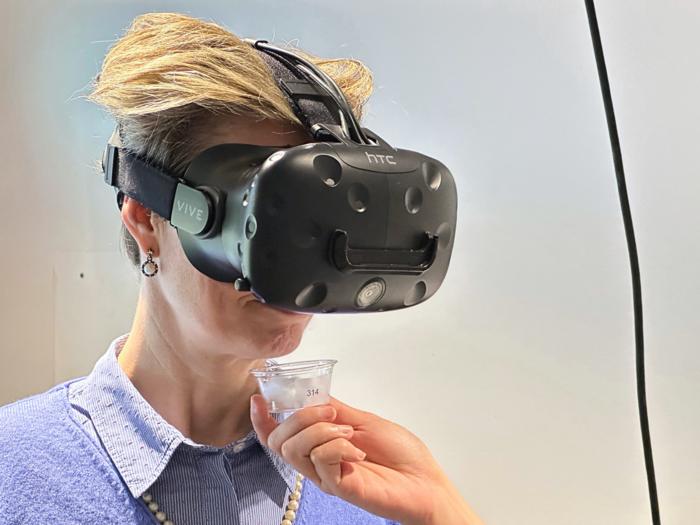Dining options in space are limited. Astronauts tend to be fueled by pre-made meals packed in bags. These meals are freeze dried, rehydrated, or heat treated for extended shelf life. Astronauts simply add water to a hot or cold meal.
But these meals taste boring, and astronauts often struggle to eat enough during their stay on the International Space Station (ISS).
Now, a first-of-its-kind RMIT study has suggested food smells may be key to understanding why astronauts struggle to enjoy their meals. The study found that the environment itself can alter how humans perceive smells and tastes.
“A greater sense of loneliness and isolation may play a role and the implications of this study are around how isolated people smell and taste food,” said lead researcher Julia Lowe.
Smells of vanilla, almond, lemon
We all know that smell is a big part of taste. But what do vanilla, almonds and lemons smell like in space? To find out, the researchers put 54 participants to the test.
This unique study used virtual reality (VR) to explore how the perception of common food aromas changes in space. VR was used to simulate the ISS for the participants.
The researchers found that vanilla and almond scents were “more intense” on the simulated space station. But the citrus smell “remained the same.”
The culprit behind the stronger vanilla and almond fragrance could be a sweet chemical called benzaldehyde. This, together with individual sensitivity to odors, could explain variations in perception.
“One of the long-term goals of the study is to create better diets for sailors, as well as other people in isolated environments, to increase their nutrient intake closer to 100%,” Lowe said.

The science behind it
Loneliness and isolation may also play a role in how spaceship is experienced. This study is the first to examine odor and flavor perception in large groups (54 individuals) under isolated conditions.
The lack of gravity draws fluids from the lower body to the upper body. This can cause facial swelling and nasal congestion, similar to a bad head cold. As a result, sailors’ senses of smell and taste become less sensitive.
However, these effects are usually temporary and fade within a few weeks inside the space station.
“Cosmonauts are still not enjoying their food even after the effects of fluid conversion have disappeared, suggesting there is something more to this,” Lowe said in the press release.
As missions like Artemis go to the moon, astronauts will be in space for longer periods of time. Proper nutrition is very important for their health. Recent findings suggest that future space food may need to be modified to account for this.
“What we see in the future with Artemis missions are much longer missions, years long, especially when we go to Mars, so we really need to understand diet and nutrition issues and how the crew interacts with their food ,” said Gail Ailes, former astronaut trainer and co-researcher at RMIT said.
On the ground, this research holds promise for improving the diets of people facing persecution in. nursing homes, and other isolated settings.
The findings were published in the. International Journal of Food Science and Technology.
About the Editor
Mrigakshi said Mrigakshi is a science journalist who enjoys writing about space exploration, biology and technological innovations. His work has been featured in well-known publications including Nature of India, Superclusters, Weather Channel and Astronomical Journal. If you have pitches in mind, please don’t hesitate to email him.
#Loneliness #affects #astronauts #tastes #space #firstworld #study